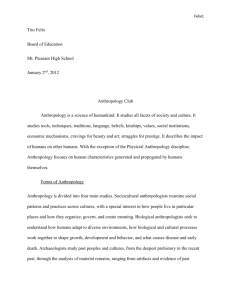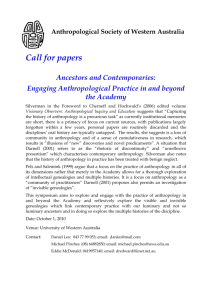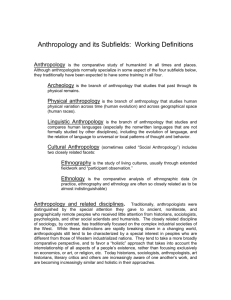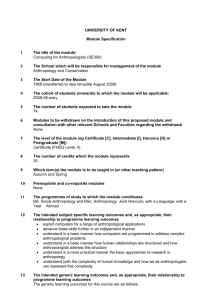Focal_Theme
advertisement
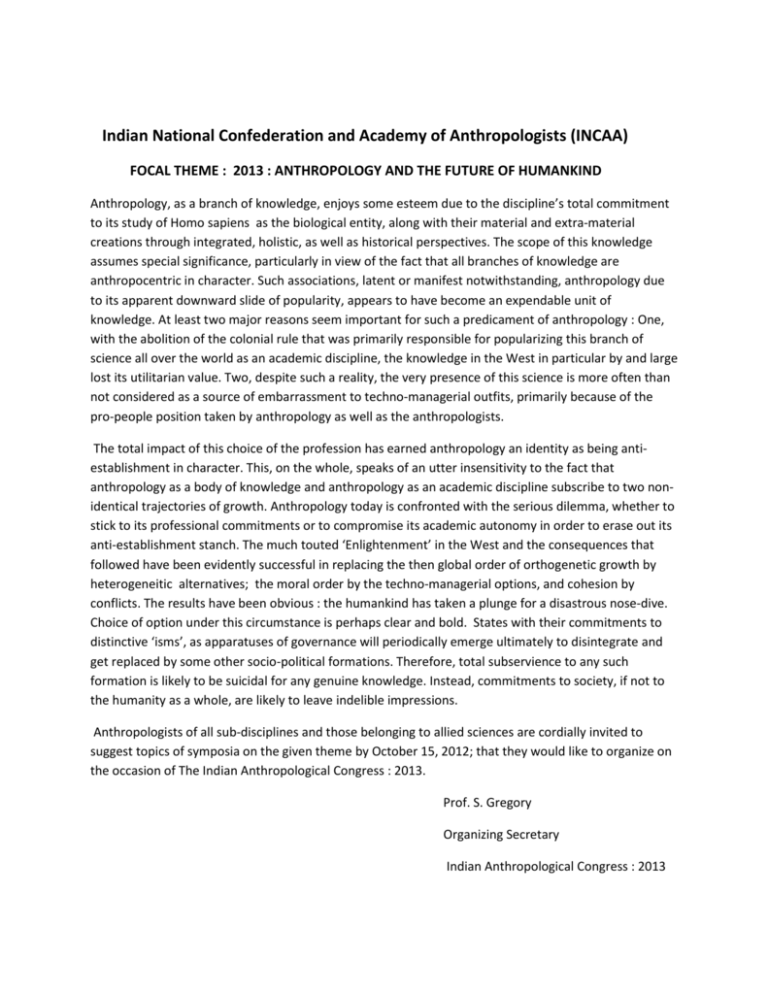
Indian National Confederation and Academy of Anthropologists (INCAA) FOCAL THEME : 2013 : ANTHROPOLOGY AND THE FUTURE OF HUMANKIND Anthropology, as a branch of knowledge, enjoys some esteem due to the discipline’s total commitment to its study of Homo sapiens as the biological entity, along with their material and extra-material creations through integrated, holistic, as well as historical perspectives. The scope of this knowledge assumes special significance, particularly in view of the fact that all branches of knowledge are anthropocentric in character. Such associations, latent or manifest notwithstanding, anthropology due to its apparent downward slide of popularity, appears to have become an expendable unit of knowledge. At least two major reasons seem important for such a predicament of anthropology : One, with the abolition of the colonial rule that was primarily responsible for popularizing this branch of science all over the world as an academic discipline, the knowledge in the West in particular by and large lost its utilitarian value. Two, despite such a reality, the very presence of this science is more often than not considered as a source of embarrassment to techno-managerial outfits, primarily because of the pro-people position taken by anthropology as well as the anthropologists. The total impact of this choice of the profession has earned anthropology an identity as being antiestablishment in character. This, on the whole, speaks of an utter insensitivity to the fact that anthropology as a body of knowledge and anthropology as an academic discipline subscribe to two nonidentical trajectories of growth. Anthropology today is confronted with the serious dilemma, whether to stick to its professional commitments or to compromise its academic autonomy in order to erase out its anti-establishment stanch. The much touted ‘Enlightenment’ in the West and the consequences that followed have been evidently successful in replacing the then global order of orthogenetic growth by heterogeneitic alternatives; the moral order by the techno-managerial options, and cohesion by conflicts. The results have been obvious : the humankind has taken a plunge for a disastrous nose-dive. Choice of option under this circumstance is perhaps clear and bold. States with their commitments to distinctive ‘isms’, as apparatuses of governance will periodically emerge ultimately to disintegrate and get replaced by some other socio-political formations. Therefore, total subservience to any such formation is likely to be suicidal for any genuine knowledge. Instead, commitments to society, if not to the humanity as a whole, are likely to leave indelible impressions. Anthropologists of all sub-disciplines and those belonging to allied sciences are cordially invited to suggest topics of symposia on the given theme by October 15, 2012; that they would like to organize on the occasion of The Indian Anthropological Congress : 2013. Prof. S. Gregory Organizing Secretary Indian Anthropological Congress : 2013






